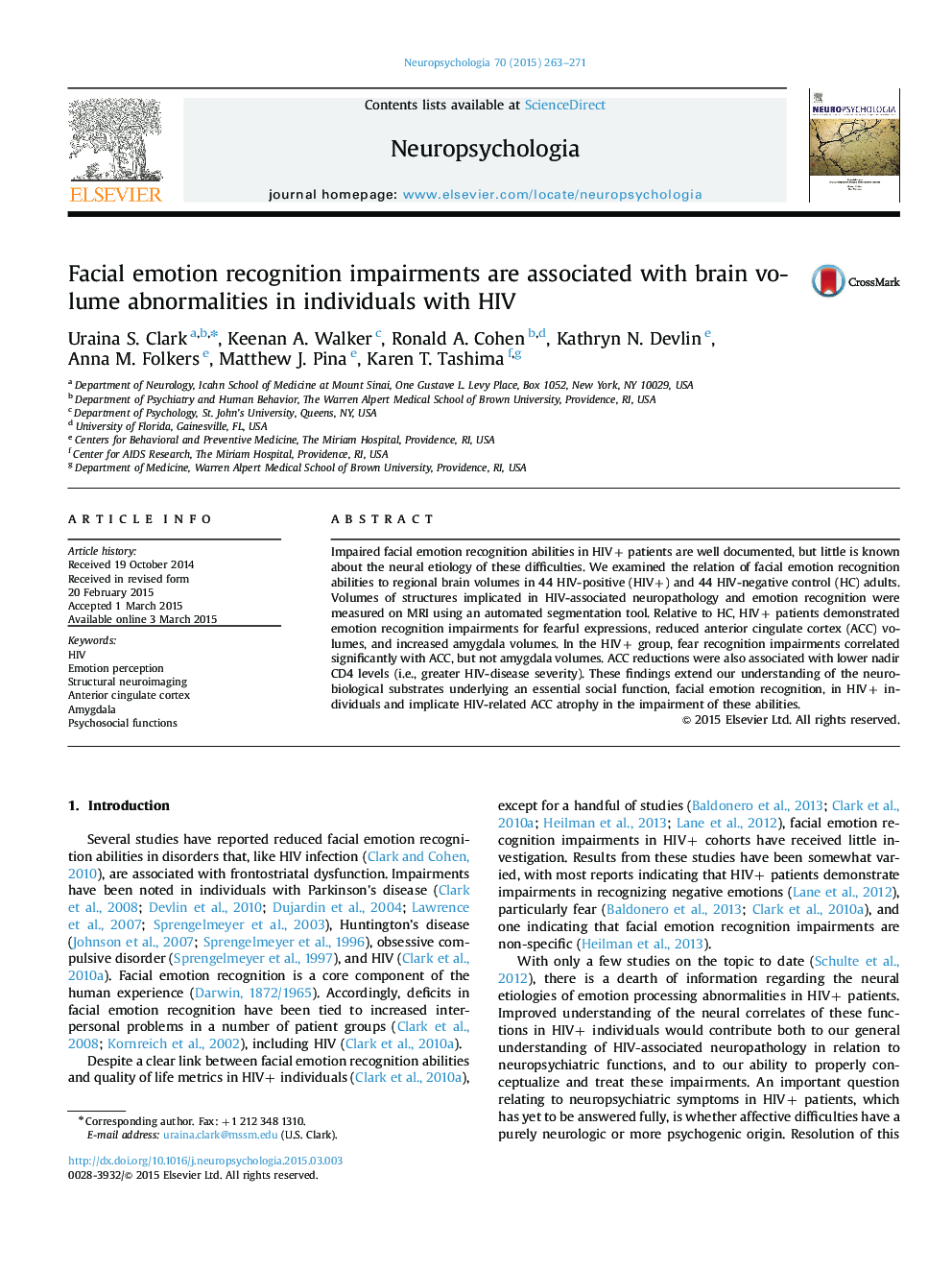| Article ID | Journal | Published Year | Pages | File Type |
|---|---|---|---|---|
| 7320552 | Neuropsychologia | 2015 | 9 Pages |
Abstract
Impaired facial emotion recognition abilities in HIV+ patients are well documented, but little is known about the neural etiology of these difficulties. We examined the relation of facial emotion recognition abilities to regional brain volumes in 44 HIV-positive (HIV+) and 44 HIV-negative control (HC) adults. Volumes of structures implicated in HIV-associated neuropathology and emotion recognition were measured on MRI using an automated segmentation tool. Relative to HC, HIV+ patients demonstrated emotion recognition impairments for fearful expressions, reduced anterior cingulate cortex (ACC) volumes, and increased amygdala volumes. In the HIV+ group, fear recognition impairments correlated significantly with ACC, but not amygdala volumes. ACC reductions were also associated with lower nadir CD4 levels (i.e., greater HIV-disease severity). These findings extend our understanding of the neurobiological substrates underlying an essential social function, facial emotion recognition, in HIV+ individuals and implicate HIV-related ACC atrophy in the impairment of these abilities.
Related Topics
Life Sciences
Neuroscience
Behavioral Neuroscience
Authors
Uraina S. Clark, Keenan A. Walker, Ronald A. Cohen, Kathryn N. Devlin, Anna M. Folkers, Matthew J. Pina, Karen T. Tashima,
